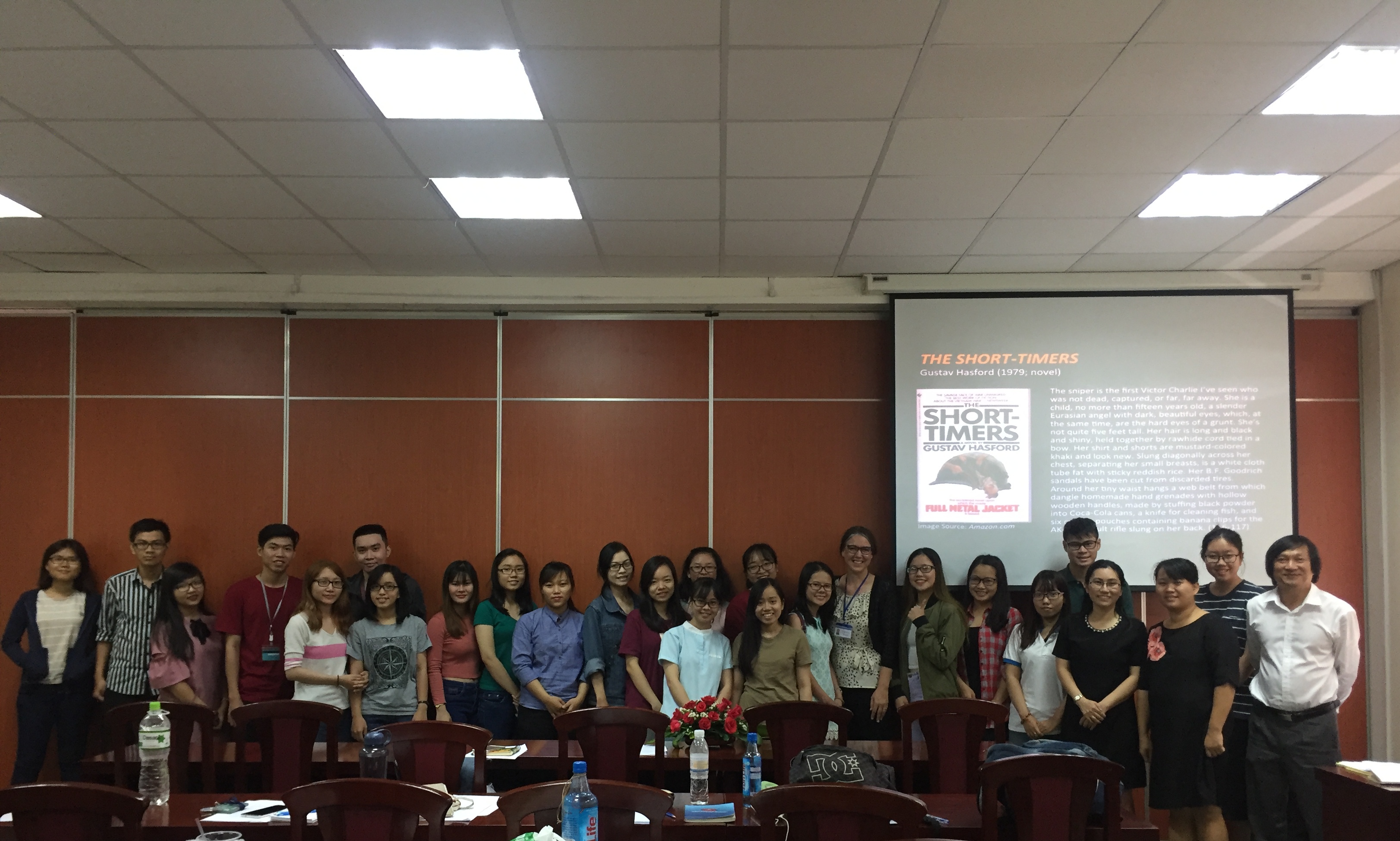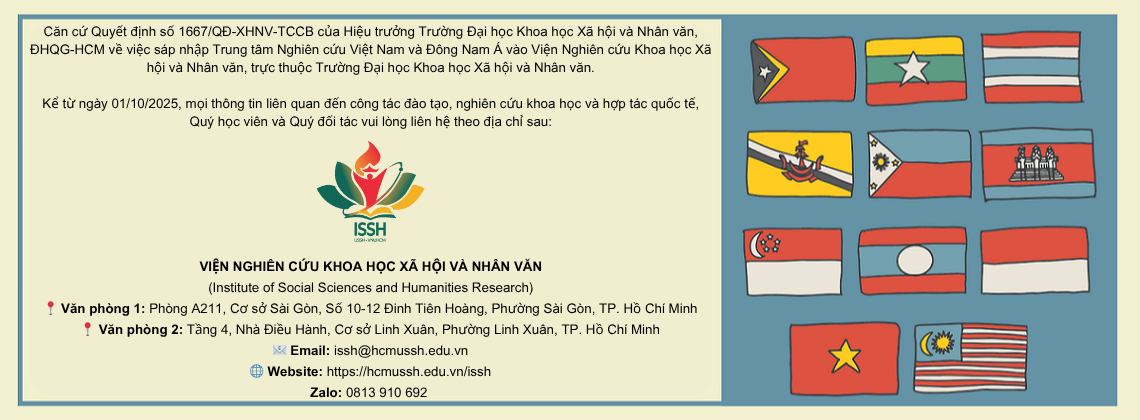SEMINAR: REPRESENTATIONS OF LONG-HAIRED WARRIORS IN U.S. VIETNAM WAR LITERATURE
, 19/05/2017 16:05On April 28, 2017, the Center for Vietnamese and Southeast Asian Studies had the honor of inviting Ms. Isadora J. Wagner, a doctoral student majoring in American Literature at the University of Mississippi, to give a seminar on “Representations of Long-Haired Warriors in U.S. Vietnam War Literature”.
In the seminar, Wagner provided a general representation of Vietnamese women and American soldiers through literary works or excerpts. For example, a poster during wartime in the US is a portrait of a female teacher teaching a girl about the world with the saying “This is the ideal of our war”, and the absence of men indicated that their role was on the battlefield. By contrast, a poster painted in 1970 in Vietnam depicts a group of people of different generations, races and genders preceding the Trung Sisters (Trung Trac and Trung Nhi) with the caption “Following the Trung Sisters – Eliminate invaders”, which shows the tradition of Vietnamese women in a national war against the US.
As for the question “What is gender?”, Ms. Wagner said that gender is a conception of the society. Through different periods of time, it establishes various expectations regarding which elements should be considered typical of males or females and how each individual has to behave in order for their gender to be recognized by the society. To the question “How many Vietnamese literary works about wartime have been published in the US?”, Ms. Wagner answered that there are not many. In America, initially, books written by survivors of war were prohibited due to several reasons such as language barriers, sorrow of war, and other political and cultural issues during a decade after the war, etc. Later, there were more pieces of writing by the first generation’s children who want to recall the experiences that have shaped their family life and country. At present, the third generation of American writers of Vietnamese origin has been paying more attention to this theme, yet there are still very few literary works about the war or the Vietnamese people’s perspective written in English.
The seminar ended up in a congenial atmosphere between Ms. Wagner and the attendees. Talking to the Center for Vietnamese and Southeast Asian Studies, she said that it was a great honor for her to share her knowledge and learn from other students, who truly impressed her with their concentration, enthusiasm and understanding. Moreover, she realized that her visit to HCMC USSH and discussions after the seminar were really useful for her research on women in wartime. She hopes to come back to Vietnam someday together with her students and would like to have opportunities for cooperation with the University in the future.















